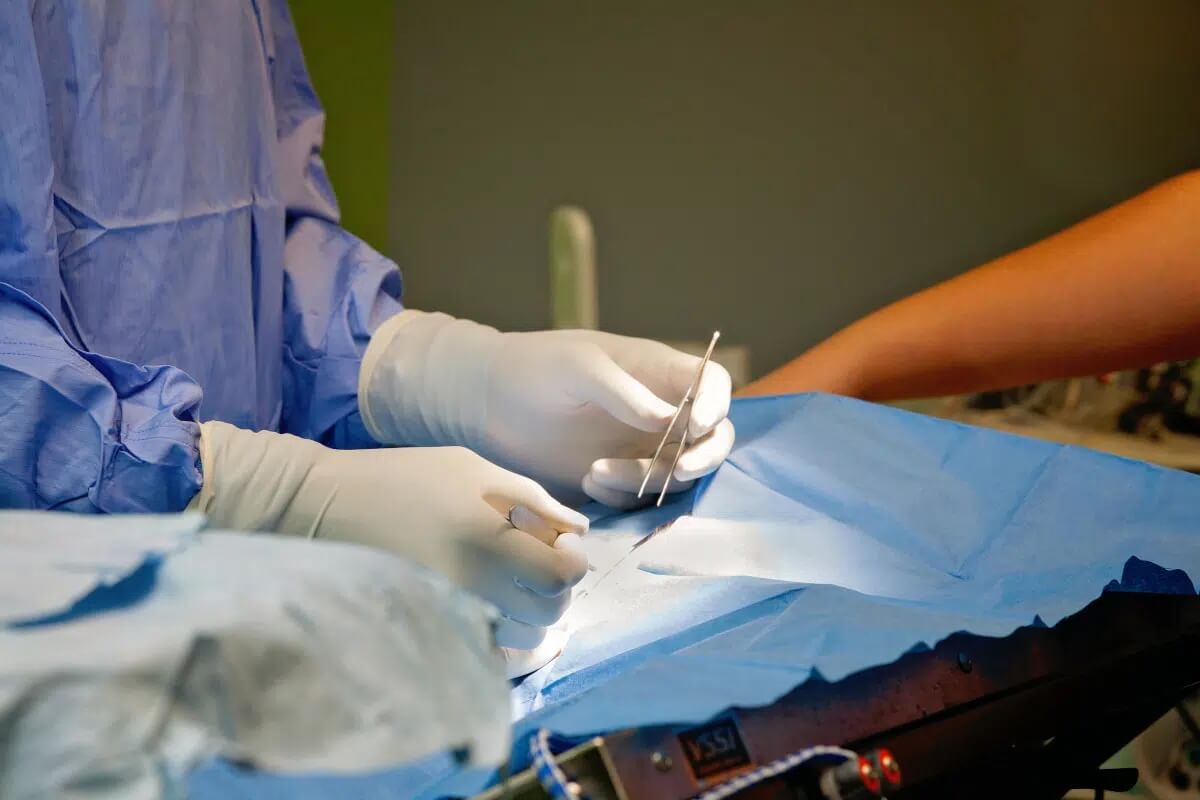 Mass removal is the surgical procedure to remove tumors. Tumors may come in many forms and consistency, and can also be located in any part of the body. ‘Tumor’ is the terminology used to describe an overgrowth of normal body tissue. Tumors can be categorized as external tumors when you can feel them on your pet’s skin and internal tumors when they grow inside the body. If your pet is not overweight and you start to feel some lumps or bumps while petting him/her, your pet might have a tumor. Internal tumors can grow on any organ such as the liver, spleen, kidneys, urinary bladder, bowels, heart, lungs, brain, bones, joints capsule, and also muscle tissue. Internal tumors can be difficult to identify early but regardless of their location, they may lead to various changes in your pet’s health status, changes in posture but also some changes in the bloodwork. These conditions highlight the importance of routine annual or bi-annual exams when they get older, bloodwork, and urine test to have a glimpse of what might be changing in the body. The sooner internal tumors are identified, the better our chances of performing successful treatments.
Mass removal is the surgical procedure to remove tumors. Tumors may come in many forms and consistency, and can also be located in any part of the body. ‘Tumor’ is the terminology used to describe an overgrowth of normal body tissue. Tumors can be categorized as external tumors when you can feel them on your pet’s skin and internal tumors when they grow inside the body. If your pet is not overweight and you start to feel some lumps or bumps while petting him/her, your pet might have a tumor. Internal tumors can grow on any organ such as the liver, spleen, kidneys, urinary bladder, bowels, heart, lungs, brain, bones, joints capsule, and also muscle tissue. Internal tumors can be difficult to identify early but regardless of their location, they may lead to various changes in your pet’s health status, changes in posture but also some changes in the bloodwork. These conditions highlight the importance of routine annual or bi-annual exams when they get older, bloodwork, and urine test to have a glimpse of what might be changing in the body. The sooner internal tumors are identified, the better our chances of performing successful treatments.
5 Signs Your Pet Might have a Tumor
If you notice one or many of these symptoms, your pet might have a tumor:
- Vomiting/Diarrhea/Not Eating in a
- Pet 7-Years or Older Significant
- Weight Loss
- Distended Abdomen
- Swollen Lymph Nodes
- Swollen Limb and Lameness not
- Responsive to Pain Medicine
Is it Benign or Malignant (cancerous)?
Benign tumors invade the surrounding tissue locally and do not typically lead to major illness. A tumor that has the ability to spread to other locations and cause illness is classified as Cancer. The best way to establish a diagnosis of a cancerous tumor is by collecting a sample through a biopsy and sending it to a laboratory for histopathology. There is no way to tell what kind of tumor any given mass is just by feeling it. The ones that we can make a decent guess on are fatty tumors or lipomas, Mast cell tumors, and dermal cysts. Fatty tumors are one of the most common skin masses that can develop in your pet. They are usually benign.
What to Do Next?
If you feel anything on your pet’s body you and you are unsure of, or if you suspect your pet might have a tumor, please give us a call, or make an appointment online, so that one of our doctors may perform an evaluation to investigate this further.
